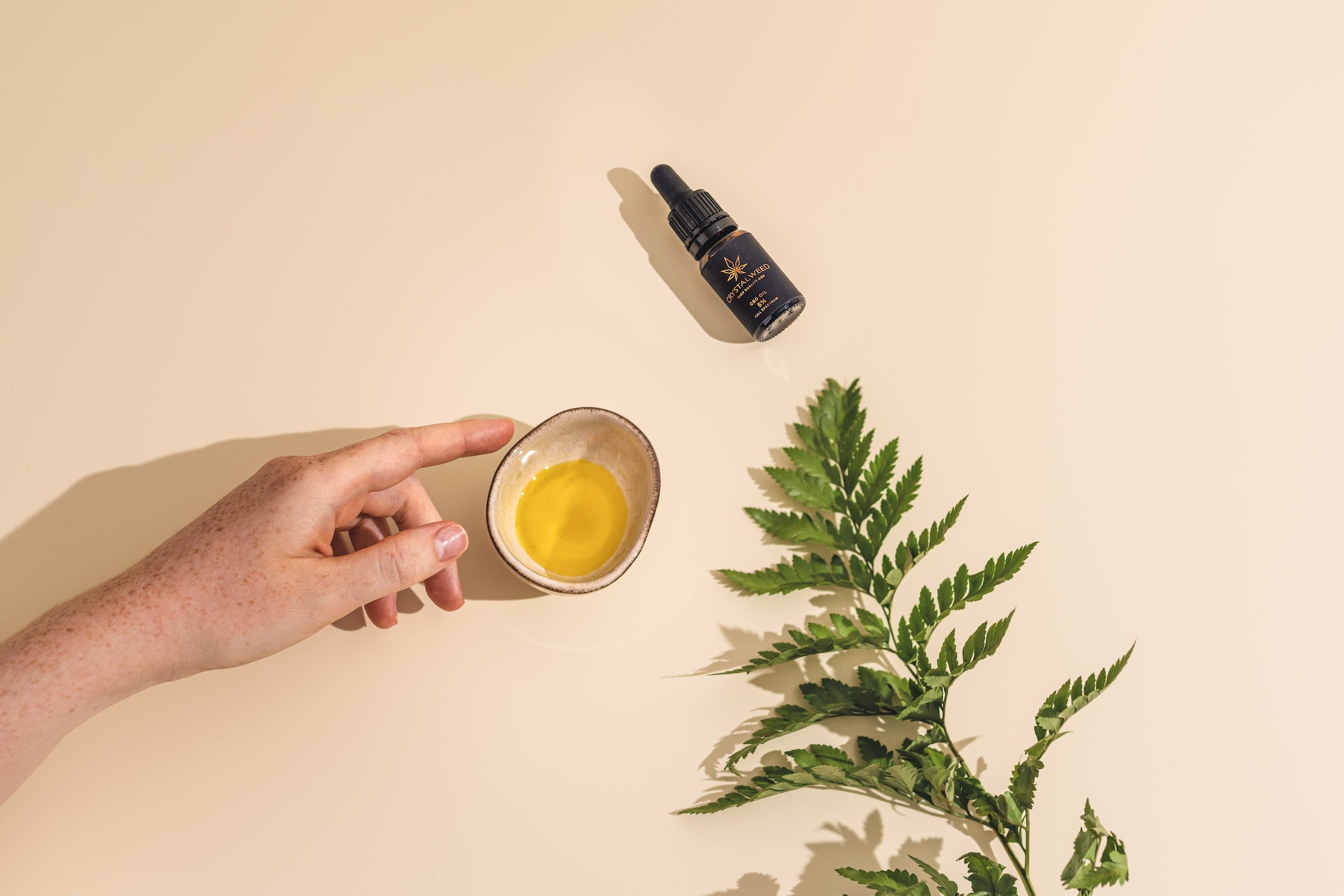An Interview and Weeding Announcement with Penny Lane
Crystalweed cannabis/Unsplash
November is Epilepsy Awareness Month, and thus a great time to talk about how our beautiful fat nugs get used by patients and people in the cannabis industry that use the plant to stop seizures. The world went nuts with the Weed Series on CNN that featured kids battling through the grips of this complex neurological issue that's known for taking 50,000 lives a year. Many don't consider the adults in the World of Purple as they paint their faces and hair that color this month to celebrate their continued life, their will, and their ability to overcome.
Penny Lane is one of those adults. Penny Lane was diagnosed with Drug Resistant Epilepsy as a child, and has lived with the condition ever since. After finding relief through the use of cannabis, she educated herself on the industry and began Mary Jane by Penny Lane, an agency at which she serves as a brand ambassador, social influencer, and cultivation/dispensary consultant.
Let's talk with Penny Lane about her Mary Jane and how it changed her life.
When did you find out you had epilepsy?
I was born with epilepsy. However, in 1979 that wasn't my diagnosis, as doctors didn't catch the epileptiform wave until later in life on EEGs - the testing that determines the diagnosis. I was a teenager when it was labeled a "neurological" disorder. I had absence seizures my entire youth. It was after an accident at the age of 31 that damaged my spinal cord at the C5-C6 vertebrae that I had my first Grand Mal, and not until after did I get the official diagnosis.
What was it like to grow up with Epilepsy?
Childhood was difficult. I was restricted and wasn't allowed to play like the other children; however, nobody ever explained to me why other than that it would stop me from getting hurt. So, I read, and I read. It kept me busy, so I did that a lot. I know later in life, as I'm a parent now, that it was not a conventional childhood. But then, as a kid, I thought it was the way it was. Epilepsy doesn't give people a choice about that.
What type of seizures do you have?
I have several types, including grand mal, absence, and focal seizures. The majority are tonic/clonic. I have seizures all the time, but I don't feel it necessary to announce it because that's not always the wise thing to do; not everyone understands, and for some, it scares them. I won't apologize for my life or for having epilepsy.
Does Epilepsy get in the way of work in Cannabis?
I don't allow epilepsy to get in the way of anything. Most epilepsy patients I know can't work at all. Cannabis gave me life-saving medicines and a platform to speak on the benefits of cannabis, the plant and its extracts, for epilepsy patients. I could see how it might be a barricade at times. But part of living with epilepsy is being able to push through.
How do people treat you when you talk about it personally?
Most people are shocked when they discover I am epileptic. I don't feel treated any differently than others. I feel that there may be a new understanding of epilepsy and cannabis and how it's my primary treatment.
Do you find yourself alone a lot in your work? If so, why?
I often find myself alone in my work as there are not many other epilepsy advocates that I’ve encountered in the cannabis space. So, my research is, for the most part, done primarily independently. That said, I attend many expos and festivals, and that's where the cannafam is, and we are never alone in the company of family.
What sets off seizures?
For me, several things trigger seizures. I do not have photosensitive seizures, so it's not flashing lights. My triggers are audible, and this isn't understood by most. So, the pitch of the sound of a crying baby or smoke alarm, sirens, or consistent ticking can trigger seizures for me. Stress and lack of sleep are other significant triggers that affect me. Anxiety can also be a trigger. I've learned how to adapt and overcome.
When did you start using cannabis?
I was a typical SoCal teen and experimented, but it wasn't until I was 26 that I became a patient and later realized I had been "self-medicating."
How has it helped you?
Without cannabis, my quality of life would be nonexistent. Pain levels would be unbearable. Seizure control would be absent, and the chance that I would be alive to tell you any of this is very low. Cannabis gave me my life back after 160+ ineffective AEDs (anti-epileptic drugs). No longer was I a slave to medicine I prayed would work or kill me because the side effects were so harmful.
Within weeks of being weaned from pharmaceutical meds and put on pure plant medicine, my life had changed dramatically. I could eat again. My pain was manageable, and I even went more than 48 hours without a seizure. Cannabis has saved my life.
Which Cannabinoids do you find to be most helpful for people with Epilepsy?
I feel like every patient, not just epileptic patients, reacts differently to each cannabinoid. I find a lot of relief from myrcene, humulene, nerolidol, and limonene. Each one provides a different form of relief, and a plethora of strains contain one or more terpenes.
All Photos Courtesy of Penny Lane
What work are you doing in the cannabis industry? Tell me about Mary Jane.
Mary Jane by Penny Lane is the company I founded in 2015 in Southern California. It is a branding and marketing company like no other in cannabis. The primary goal is to help brands expand and reach patients nationally while staying state compliant without diminishing the brand's quality or products offered across the board. Mary Jane by Penny Lane is also responsible for many of the great collaborations we have seen in the industry by connecting people with great ideas to one another. Those collaborative endeavors garnered me the 2022 Networking Woman of the Year in cannabis.
What advice would you give someone with epilepsy trying to enter the industry?
Be unapologetic. Be authentic. Own your truth. And never hide behind epilepsy. It's part of you, and you have a voice to help others who may be suffering.
Do you feel that you're treated fairly as a person after you have a seizure?
I scare everyone who witnesses it, but there's a great deal of compassion once the fear passes.
How do you think people can help us better in business when they know we have epilepsy?
I feel that awareness is critical. If others aren't aware I have epilepsy, it is difficult for them to accommodate it. Understanding is so important, so I speak out about how cannabis helps people with neurological disorders. Once someone knows I have epilepsy, they are more interested in Mary Jane by Penny Lane; they want to know what I do. While having seizures isn't easy and causes many issues in life, it can also help me educate crowds about cannabis and how great of a medicine it is.
Is there anything else you'd like to share with the Fat Nugs Crowd?
This year has been an epic year for me. I've traveled to 17 states and worked and played at expos, conventions, and festivals. I also met the love of my life, CW Permenter (aka Dub).
Didn't you say you had an announcement to make?
Yes, Dub and I will be married in Las Vegas during MJ BizCon week! Our wedding is at 6 p.m. at the Chapel Of The Flowers, in the Victorian Chapel. We want our huge cannabis family to join us as we unite our love; everyone is invited!




